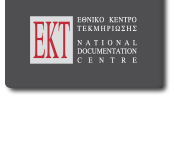Για να παραπέμψετε στο παρόν τεκμήριο παρακαλούμε χρησιμοποιήστε τα παρακάτω αναγνωριστικά:
http://hdl.handle.net/20.500.12038/271| Επίπεδο εγγραφής: | Έργο ολοκληρωμένο |
| Εξωτερική διεύθυνση διάθεσης πλήρους ψηφιακού τεκμηρίου με ανοικτή πρόσβαση (link): | https://www.sciencedirect.com/science/article/pii/S2212420923001954?via%3Dihub |
| Χρονολογία: | 2023 |
| Θέμα: | Forest fires Δασικές πυρκαγιές |
| Δημιουργός: | Ascoli, D. Plana, E. Oggioni, S. Tomao, A. Colonico, M. Corona, P. Giannino, F. Moreno, M. Xanthopoulos, Gavriil Kaoukis, Konstantinos Athanasiou, Miltiadis Colaço, C. Rego, F. Sequeira, A. Acacio, V. Serra, M. Barbati, A. Ξανθόπουλος, Γαβριήλ Αθανασίου, Μιλτιάδης |
| Τίτλος: | Fire-smart solutions for sustainable wildfire risk prevention: Bottom-up initiatives meet top-down policies under EU green deal |
| Γλώσσα: | Αγγλικά |
| Λέξεις-Κλειδιά: | Forest fires; Wildfire risk prevention; Fire resistant; Resilient landscapes; Fire smart; Fuel management; EU Green deal; Bioeconomy; Δασικές πυρκαγιές |
| Προσδιοριστής: | DOI: https |
| Περίληψη: | Fuel management for wildfire risk prevention generally lacks economic sustainability. In marginal areas of southern Europe, this limits fuel treatment programs from reaching the critical mass of required treated area to modify landscape flammability, the fire regime and its impacts. This study investigates key fuel management initiatives for wildfire risk prevention in southern EU countries. We compared local approaches through a bottom-up selection of 38 initiatives, which we analyzed systematically through a set of fire-smart criteria: sustainability, cost-benefit ratio, synergies and inter-sectoral cooperation, integration between strategic prevention planning and multiple land governance goals (e.g., rural development, biodiversity conservation, energy supply), innovation and knowledge transfer, and adaptive management. We summarized lessons learned from the most innovative initiatives, by identifying solutions and functional approaches for building sustainable fuel management at the landscape scale, under fire-smart management principles. These make synergistic use of private, public and European resources to activate value chains that valorize the products, by-products and services generated by fuel management activities and their positive externalities on ecosystem services. The multiple mechanisms include fire-marketing, Payment for Ecosystem Services schemes, specific taxes, or environmental compensatory measures. These mechanisms catalyze the interest of multiple stakeholders (economic actors, private owners, land and fire management agencies) improving the cost-efficiency of landscape fuel management. We contend that the EU Green Deal offers the political backing and framework (mainstreaming of EU strategies and funding opportunities) to enable the replication of documented fire-smart models and functional approaches to wildfire risk prevention. |
| Εξειδίκευση τύπου : | Άρθρο |
| Τίτλος περιέχουσας πηγής: | International Journal of Disaster Risk Reduction |
| Άδεια χρήσης: | Αναφορά Παρόμοια Διανομή  |
| Διάθεση ψηφιακού τεκμηρίου: | Πλήρης |
| Αρίθμηση περιέχουσας πηγής: | Vol. 92 |
| Σελίδες περιέχουσας πηγής: | 103715 |
| Εμφανίζεται στις Ομάδες Τεκμηρίων: | 5.1.1. Δασικές Πυρκαγιές |
Ψηφιακά Αρχεία
| Αρχείο | Μέγεθος | Μορφότυπος | |
|---|---|---|---|
| Ascoli_Xanthopoulos_Kaoukis_Athanasiou et al. Fire-smart solutions for sustainable wildfire risk prevention IJDRR_2023.pdf | 5.06 MB | Adobe PDF | Δείτε/Ανοίξτε |

